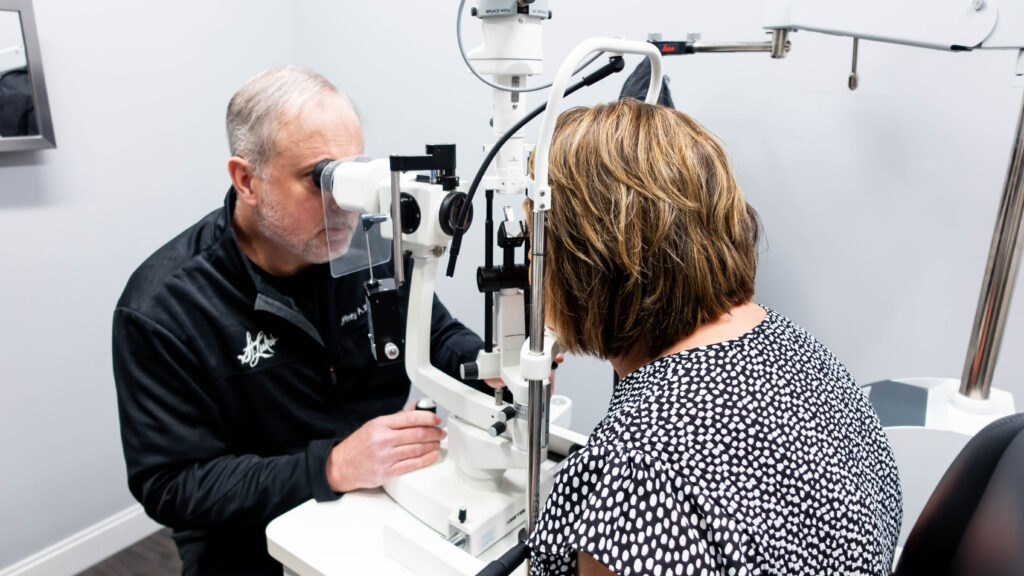Cataract Information, Cataract Surgery
How Early Cataract Detection Supports Independence and Well-Being
As we grow older, protecting our independence and daily comfort becomes more important—and eye health plays a big role in that. One common condition that can quietly impact our vision over time is cataracts.
Cataracts develop gradually, and the early signs—like blurry vision, sensitivity to light, and seeing halos around lights—can easily be overlooked. Catching these changes early on can help you stay safe, active, and confident in your daily routines.
Subtle Changes That Matter
One of the first signs people notice is blurry vision, which may make reading or recognizing faces more difficult. Night vision often worsens too, with many finding it harder to drive after dark due to glare from headlights or streetlamps.
Sensitivity to light—especially in bright sunlight or from oncoming headlights—is another common symptom. You might also start seeing halos around lights, which can make everyday activities like walking at night or using screens more frustrating.
These symptoms usually come on slowly. That’s why routine eye exams are important even if your vision seems fine—many changes aren’t noticeable right away.
Why Early Awareness Helps
Being proactive about your vision health can make a big difference. Understanding the early signs of cataracts means you can work with your eye care provider to monitor any changes and make thoughtful choices about your care.
Catching cataracts early doesn’t necessarily mean surgery is around the corner. In fact, it often means having more time to explore options, adapt your lifestyle, and stay informed without feeling rushed into decisions.
Everyday Life and Cataracts
As cataracts progress, you might notice that once-simple activities—like reading, cooking, or driving—feel more demanding. This can be especially frustrating when vision changes start interfering with your independence.
You might find yourself needing brighter lighting at home, using magnifiers, or leaning more on audio tools. Planning ahead for these kinds of adjustments can help ease the transition and preserve your confidence.
What to Know About Treatment
When vision changes start affecting your daily life more noticeably, cataract surgery becomes an option worth considering. It’s a common procedure that replaces the cloudy lens with a clear artificial one, often restoring sharper vision.
People who choose surgery often report better color perception, less sensitivity to glare, and renewed freedom in daily tasks. But deciding when—or if—surgery is right for you should be a personal conversation with your provider, based on your needs and lifestyle.
Keeping Your Eyes Healthy Over Time
Looking after your eyes goes beyond treating cataracts. Simple steps like wearing sunglasses, eating a nutrient-rich diet, and scheduling regular checkups can go a long way in supporting long-term vision health.
Understanding how our eyes change with age—such as the development of presbyopia or the gradual stiffening of the lens—can help you recognize early issues and seek help when it matters most.
Talking with Your Eye Care Team
Seeing an eye doctor regularly isn’t just about updating your prescription. It’s about building a relationship with a specialist who can track changes in your vision, answer your questions, and guide you through options when needed.
During a typical exam, your provider will assess your eyesight, check for pressure changes, and examine the health of your retina and optic nerve. These visits are a key part of staying ahead of issues like cataracts.

Schedule your cataract evaluation today to talk to a board-certified surgeon about your options.


